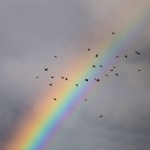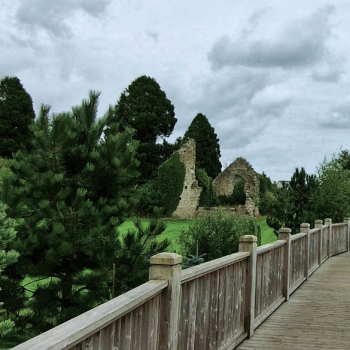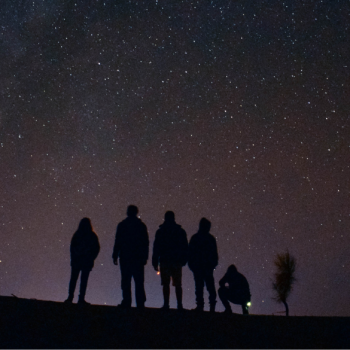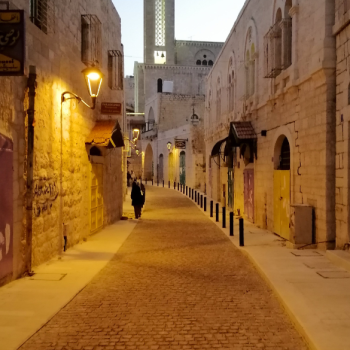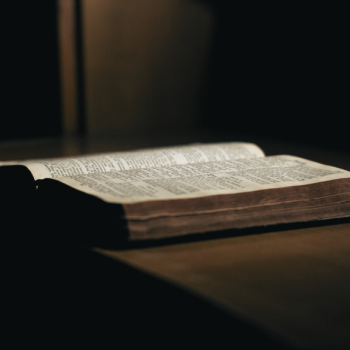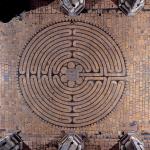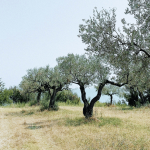As the destruction of Palestine and its people continues to run rampant, understanding ecocide and its operation in colonialism becomes ever more prescient. The Zionist regime has targeted two staple plants of Palestinian culture for decades, eroding Palestinian culture and Palestinians’ economic health and autonomy. Destruction of orchards kept for thousands of years is part of a Zionist mission to eliminate evidence of Palestinian life and tending to the land in the area to support a narrative that the land was previously uninhabited, that existing peoples were simply transient, and that the establishment of a Jewish state in the area is a just reclamation of untended land.
Colonialism, Genocide, and Ecocide
Ecocide refers to the mass destruction of nature on a grand scale. The Independent Expert Panel for the Legal Definition of Ecocide convened by the Stop Ecocide Foundation developed a consensus definition in 2021: “unlawful or wanton acts committed with knowledge that there is a substantial likelihood of severe and either widespread or long-term damage to the environment being caused by those acts.”
Further definitions of the terms used in the above definition include “Severe means damage which involves very serious adverse changes, disruption or harm to any element of the environment, including grave impacts on human life or natural, cultural or economic resources.” The commentary does not conflate ecocide directly with genocide, but ecocide has consistently been part of the process of disenfranchising at best, and genocidal missions at worst to claim Indigenous lands for the purpose of colonization. The terms genocide and ecocide overlap where ecocide impacts human beings and where genocide utilizes the destruction of land and resources in order to destroy a targeted people.
The genocidal process of destroying a culture also ties ecocide to genocide in cases where the destroyed environment, fauna, and flora are tied strongly to cultural identity, as is the case with many Indigenous groups. For example, many Native American cultures do not hold a Western concept of human vs. non-human living beings, in turn making ecocide of their environments a particularly painful spiritual destruction; in other cases, certain plants may be an integral part of the culture through cultivation and food, eradicating centuries of tradition when destroying those plants. Where indigeneity is understood as a relationship directly with specific land, the erosion of that land is an erosion of identity. Tewa philosopher Gregory Cajete describes this destruction as “soul death”, with deep impacts for generations. When the land is understood as part of the community, the destruction of that land becomes inextricable from genocide.
The colonial process is inherently genocidal through domination, imposition of the colonizers’ culture, and exploitation, including the extraction of resources often through the forced labor of those being colonized. Genocide against Indigenous people includes ecocide as a tool to remove and destroy the protectors of land from which the colonizer intends to extract resources without regard for the environment as a whole.
Destroying the Olive Trees of Palestine
Israel has destroyed the last remaining food basket providing staple vegetables northwest of Rafah, generating famine and eliminating fertile land, part of a long history of ecocide’s use to severely decrease the population and prevent those who remain from defending themselves; this strategy has been used by the U.S. and allies against Indigenous people of North America, Southeast Asia, and Latin America through the 19th and 20th centuries.
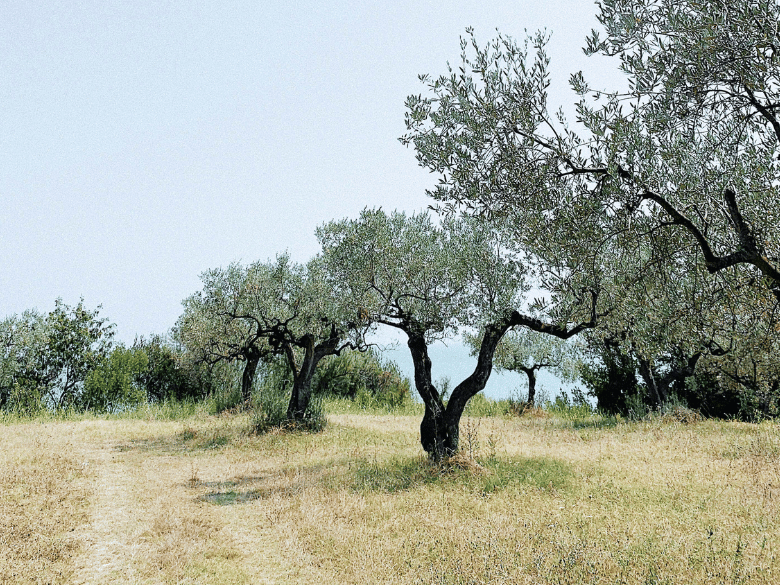
The destruction of native and culturally significant plants and significant restriction of access to those that remain has been and continues to be a routine part of the Israeli effort to eliminate the Palestinian people. Israel has uprooted at least 2.5 million trees since 1967, with 1 million of them being olive trees.
Since the establishment of the Zionist state, olive trees have been a target of destruction. Olive trees have spiritual significance as a holy tree blessed by Allah, alongside fig trees. Palestinian farmers interviewed for a 2009 article describe their relationship to the trees as givers: “‘[Y]ou don’t give it anything and it gives you everything in return.”
Olive trees can take up to 40 years to bear fruit; as a consequence, they are cared for by multiple generations of the same family, becoming integral to the family and family history. Many of the trees in Palestine date to centuries before the occupation. When destroyed, both the tree and thousands of years of family history on the land is destroyed. Not only are the trees drought resistant; their bark act as a carbon sink absorbing 11 kg of CO2 per liter of olive oil produced, benefiting those who tend them as well as an entire world under threat of environmental destruction.
These trees are also integral to the economic health of the Palestinian people, such that their destruction prevents Palestinians from supporting themselves. These farmers have functioned as the primary income source for up to 800,000 Palestinian families before the current explosion of violence and destruction against the Palestinian people by Israel. The olive harvest was especially important in the face of a high unemployment rate.
This effort has been ongoing since at least 1967. From then until a report in 2023, more than 800,000 Palestinian olive trees were illegally uprooted by the Zionist state, with 9,000 removed in August 2021 alone. Several legal obstacles to tending the trees have been established by Israel, creating undue difficulty through land permits. In 2020, just 24% of land access permits were approved. These permits require renewal, at which point the permit could be denied, suddenly cutting off access to the olives. The permits also serve to prevent the year-round tending of the trees. The ability to care for them has also been limited by Israeli restrictions on water access.
A report in January found that many families were forced, to their emotional suffering, to destroy their trees for survival. The need for firewood for warmth and cooking forced families to use the wood of their trees. One Palestinian described these trees as “life companions” who watched the children of the family grow up. Another describes them as “liv[ing] through my moments of joy and sadness.” The trees were even referred to as “like our children.” Satellite imagery at the end of April 2024 finds up to 48% of tree cover and farmland destroyed in Gaza.
Green Colonialism and Za’atar
In 1977 the Israeli Ministry of Agriculture regulated Palestinian access to another cultural staple, wild za’atar, with complete disregard for Palestinian voices on the matter. This regulation is an example of green colonialism, a tactic that uses environmental protection as a guise to progress colonial interests.
The regulation of za’atar as a “protected plant” has disproportionately impacted Palestinians with the criminalization of za’atar foraging, a long-standing Palestinian tradition. It is yet another example of Israel’s attempts to erode Palestinian identity, alienate Palestinians from their history with the land, and promote Israeli cultural dominance.
Simultaneously, Israel claims za’atar on the global landscape as a staple of Israeli culture. A reporter with Vice reports in 2014 an Israeli guide introducing it: “You all have to try some. You will immediately become Israeli as soon as you do.” It is incorporated beyond a cultural claim, but even more so as co-substantive with Israeli identity itself, despite being a Palestinian staple long before the establishment of the Zionist state.
This herb is a key symbol of Palestinian connection with the land as exhibited in the poem “Ahmad al-Za’atar”, which links Za’atar to a former refugee camp that was the site of a massacre during the Lebanese war. The herb serves as a symbol of the Palestinian land struggle against Israeli colonization.
This use of green colonialism serves to paint Palestinians as incapable of caring for their land or even destructive, creating a need for Israeli occupier protection against the Indigenous population. In reality, Palestinians are one of the Indigenous groups stewarding 80% of the world’s biodiversity on only 22% of the world’s land.
Israel also uses green colonialism to hide the historical presence of Palestinians on the land and the elimination of them by Israeli violence. The Zionist state hides the ruins of villages and appropriates land through parks, nature reserves, and the planting of forests.
Biblical Land Stewardship and the Destruction of Palestine
As described by the United States Conference of Catholic Bishops, stewardship means receiving, cultivating, and sharing God’s gifts. As stewards of creation, humanity is called to “joyful appreciation” and protection of nature, and respect for human life. The Second Vatican Council indicates our work for the world as a collaboration with God in creation. Genesis tells us this: “The LORD God placed the man in the Garden of Eden to tend and watch over it” (2:15).
Principles laid out by Catholic Rural Life similarly frame stewardship as care for the creation and further state that God’s complete ownership of the earth means that civil title to the land indicates responsibility for the land and how it is treated, but does not confer true ownership. In Leviticus 25:23, God introduces the Jewish people to their gifted land at the same time stating, “The land must never be sold on a permanent basis, for the land belongs to me. You are only foreigners and tenant farmers working for me.”
This cannot, therefore, be understood as a permanent conferring of the land. The concept is antithetical to a colonial project that seeks to claim and own land for the extraction of its resources. The organization further states that the land is a gift for all generations, and requires that we treat it in a manner that preserves it for the future, such as responsible farming practices that preserve topsoil and nutrients.
Citing Pope Leo XIII, the organization states that the concentration of land into few hands contradicts biblically mandated equal land distribution and suggests that those who work the land should make a livable wage and have a pathway to partial or complete ownership of the land they tend. Those affected by land use should have the greatest right to determine any changes in use.
In accepting this interpretation of stewardship, one that speaks to a communal and equitable understanding of property and resource distribution, Catholic ideology cannot support the Zionist acquisition of land long occupied and tended to by centuries of Palestinians who are not only suffering inequitable distribution, but full eradication of their relationship with the land they have stewarded and tended with love and care.
These principles support a Palestinian right to self-determination for the land their ancestors have lived on for thousands of years. It does not belong to those who would tear up trees to claim ownership, and especially not those who do continued damage to the land and environment through destruction with weapons that severely impact the environment and generate great amounts of CO2 and other pollutants.
Catholics and other Christians cannot support the Zionist occupation committing violence upon the land and the people who have been tied to and caring for it, nor should secular Leftists who believe in environmental justice, Indigenous self-determination, and the elimination of private property. It is a matter of human rights, community care, and our duty to the Earth and future generations that occupy it. Anything else is a misuse of this gift, whether from God, grand coincidence, or something else entirely.



